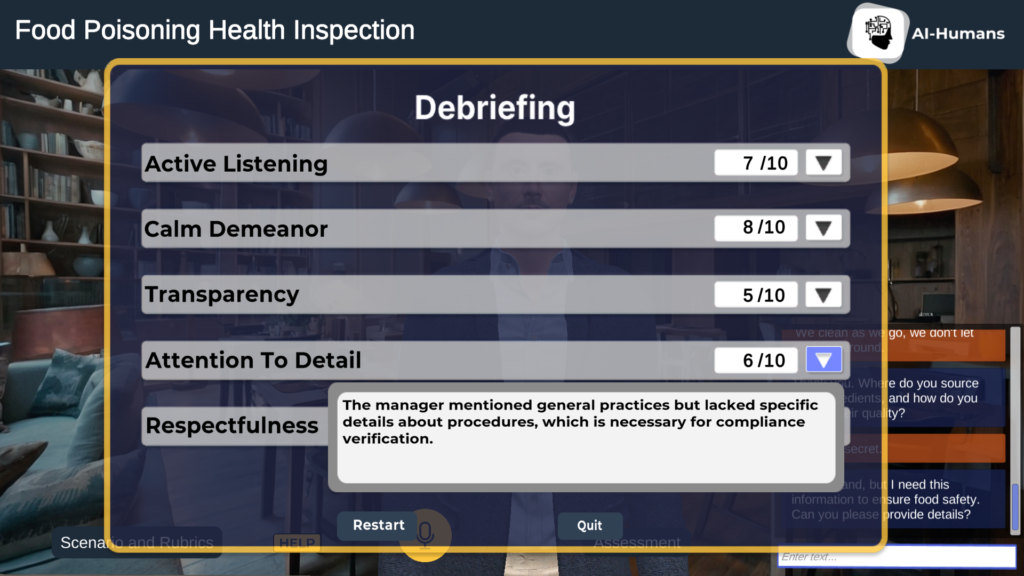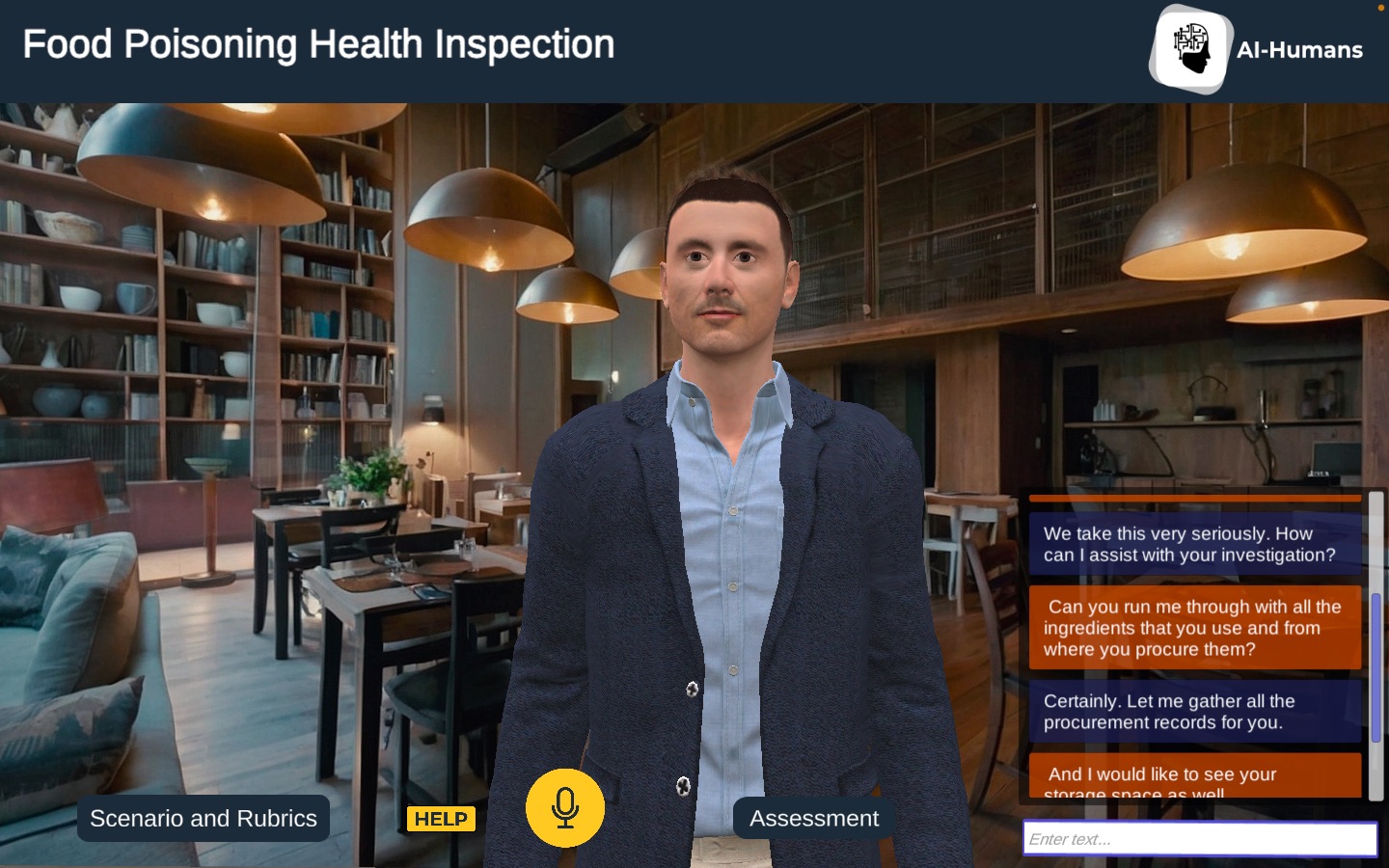Relax, unwind, share stories and spend a leisurely time over some delectable food and drinks. This is what every patron at a restaurant looks forward to. A restaurant is not just a place to have food, it is a place to create memories and experiences. Every person involved in the working of the restaurant becomes a part of that experience and at the heart of everything lies mouth-watering dishes. However, one slip can turn everything topsy-turvy, punch a hole in the well-being of the establishment and damage reputation severely. As per Center for Disease Control and Prevention (CDC), in the US in a year, “48 million people get sick from a foodborne illness, 128,000 are hospitalized, and 3,000 die.” These are alarming numbers. As serving food is the primary business of restaurants, it becomes increasingly important to follow strict guidelines to prevent any untoward incident, thereby safeguarding their patrons and their business interests. One of the primary steps in this direction would include providing quality food safety trainings to their employees and conversational AI scenarios present a promising future in providing quality training opportunities.
Traditional food safety training challenges
An effective food safety training ensures that everyone in the establishment involved with food preparation, storing and serving is well equipped with the knowledge and skill to follow safety practices and regulations. Traditionally, trainings in this domain have been imparted in the form of classroom sessions, through printed material and demonstrations. These methods have been effective to a great extent but are also accompanied by some challenges.
Inconsistent training delivery: The effectiveness of a training session is largely dependent on how the trainer steers the wheel. It also depends upon the expertise of the trainers and the consistency in delivering a session, which is bound to change from session to session. Emphasis may be laid on varying issues in varying sessions leading to varying levels of understanding among the trainees and eventually lead to knowledge gaps.
Lack of engagement: Food safety training included an exhaustive amount of information that needs to be understood and absorbed. This can prove to be boring and tedious leading to poor engagement with the content. In such circumstances, knowledge retention takes a backseat having grave impacts in the long run.
Language and culture barrier: Food is a global business, and the restaurant industry attracts workers from different cultures and people speaking different languages. If training methods do not take into consideration these factors, there can be a gaping hole in the training scenario. It will be incomplete and ineffective training.
If there are gaps in the training methods and process, there can be serious consequences. According to a study conducted by John Hopkins University a “single outbreak of listeria in fast food and casual style restaurants could cost upwards of $2.5 million in meals lost per illness, lawsuits, legal fees, fines and higher insurance premiums for a 250-person outbreak.”

How conversational AI can help in food safety training
Moving away from traditional forms of training, conversational AI offers a modern take on it. Leveraging natural language processing and machine learning, conversational AI can help create learning experiences that are interactive and engaging.
Personalized training – Conversation AI has the ability to tailor content to match the learner’s ability and learning pace. AI-driven training material can assess the existing level of knowledge and accordingly make modifications to ensure that each learner gets the appropriate level of training.
Interactive modules – AI-powered characters in scenarios provide an interactive learning platform. Instead of indulging in passive reading and listening sessions, learners get the opportunity to be part of a dynamic and interactive session, making learning more retentive and comprehensible.
Anytime, anywhere accessible – Balancing training and working schedules can be challenging. AI-powered learning modules are available anytime, anywhere, allowing learners to indulge in a training sessions at a time suitable to them.
Overcomes language barriers – Language barriers can easily be overcome by AI-driven training since these modules support a range of languages. The restaurant industry particularly consists of people from diverse regions speaking diverse languages. In such circumstances, AI helps break the language barrier and help non-native speakers understand concepts and standards applicable to the industry.
AI-driven instant feedback – One of the biggest advantages of learning with AI-driven content is the instant feedback. Feedback serves the important function of giving an insight into a user’s performance. Instant feedback has a greater impact compared to a delayed one, helping users understand their performance and act upon the areas of improvement. The AI-driven feedback provided on AI-Humans assess learners on every skill assigned to the scenario, making it comprehensive and personalized.
Real-time learning – Learning with AI-powered training material has the advantage of providing learners up-to-date learning content. Matters like changes in regulations, modifications to standards and new technological developments can be incorporated into training material with minimal effort, helping learners stay updated.
Food safety is of utmost importance to the restaurant industry. It not only ensures the health and well-being of its patrons but also helps keep the establishment running smoothly, guaranteeing repeat business. To attain high standards of safety, it is important to provide its staff with effective and efficient training. While traditional training methods have been serving the purpose over the decades, conversational AI helps address a number of issues that could not be tackled in the old system. When the goal is to attain the highest level of safety, it makes sense to go for the best form of training.
AI-Humans from ELDC is a SaaS-based platform that enables trainers to develop AI-powered durable skills training solutions within minutes. While all technical aspects of creating these AI-powered scenarios have been taken care of by the team, trainers can devote all their attention towards giving shape to highly effective and relevant training and provide learners with engaging and immersive training opportunities. Practicing durable skills is the best way to learn and this is precisely what AI-Humans is providing.

